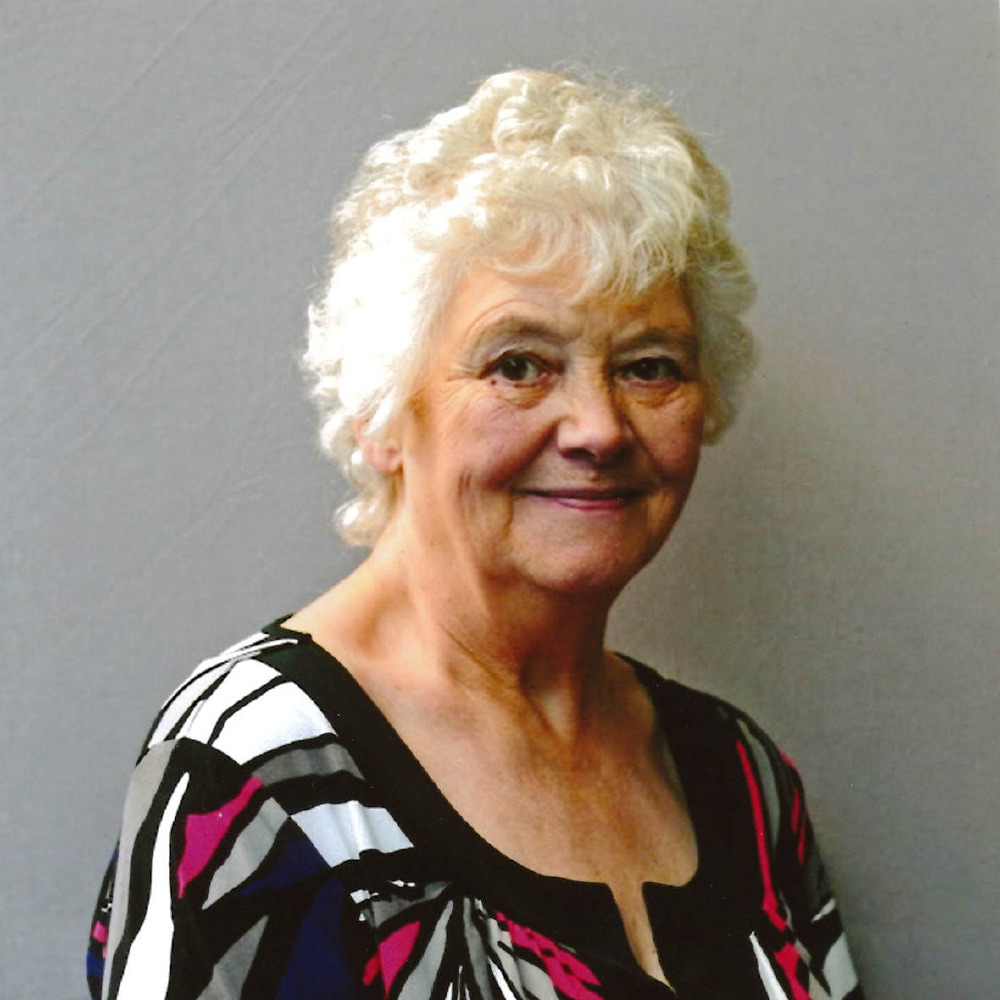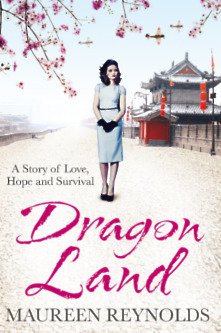
Maureen Reynolds

Dragon Land is set in 1917, Lizzie Flint is six years old when news come from France that her father is missing believed dead in the war in France. She has to cope with her mother’s denial who is convinced her husband will be home at some time which leads to the declaration of her mother’s health.
With the staunch help of her grandmother and aunt she manages to have a normal childhood. She has always planned on leading an adventurous life with travelling the world but she agrees to train as a teacher. However her career is cut short with her mother’s death and she finds her life a mixture of turmoil and grief.
When she gets the chance to go to Hong Kong to teach in a school she is reluctant to go but with her aunt’s encouragement she grabs the opportunity. She loves Hong Kong and plans to spend a few years there but fate has different future mapped out for her.
She meets an Irish author and freelance journalist from Shanghai and after a whirlwind romance she finds she is a married woman travelling to China with her new husband. Suddenly she is living in an alien but fascinating land but it is a country in turmoil with civil wars and the Japanese armies taking over the northern part of the country.
After her son is born this danger becomes imminent when the Japanese bomb Peking and Shanghai. With her husband is on route to Peking to report on the situation she becomes ill and sends her son back to Scotland for safety with her husband now missing she has to face many trials and hardships to ensure she survives the conflict.
When she was a child she was told to be careful what to wish for and she now realises the truth of this statement as all she wishes for is a normal life with her husband and son.
Please tell us about the character of Lizzie.
Lizzie is a loving child but she longs for adventure. She often said she was going to be a pirate when she grew up much to the dismay of her family. She is a good scholar but as she plans on travelling the world she doesn’t see any future in leading a mundane life working in an office or shop. Her aunt and her husband have spent years travelling the world with his work and Lizzie loves looking at all her postcards from foreign lands and she plans a similar life.
When her plans change she carefully does her duty but the urge to travel never really goes away. Reconciled to her new circumstances she can’t imagine that life has a way to turning around when she least expects it and finds that adventure is back on the cards.
You have worked in many jobs so when did writing come to the forefront for you?
Although I had a good education I left school at 15 and had to get a job that brought money into the house to help with the finances. Although my mother had a job she didn’t have good health and I had a younger brother growing up which meant money was tight and times were hard.
I never regretted this decision to have various jobs because I met loads of interesting and helpful people over the years.
From a young age I always wanted to be a writer and a poet and I remember sitting on the cold steps of the close with my pals with the gas lamp casting shadows on the walls and telling them my ghost stories. Then some of the mothers complained how I frightened their daughters, I was warned to stop.
Later, after marriage and four children, any notion of writing took a backseat and I was fifty when I seriously considered chasing my dream. I had no idea how to get into publishing but I bought a typewriter and began by writing articles for the Scot’s Magazine. I then went on to writing books and I’ve never stopped.
Why did it become an ambition of yours to recount the stories of your family?
As a child I lived with my granddad, mother and brother and it was my granddad who was responsible for my imagination. He was a great storyteller and I’m sure it was his influence that made me want to write stories. He was a regular soldier who fought in the Great War but he was gassed at Ypres n 1915 and invalided out of the army.
He never mentioned his experiences but after his death I learned some f the stories from my mother. I always said I would write his story down. My mother always had her pals in the house and as they sat around drinking tea I would listen to all their stories of everyday life, the hardship, children’s illness and a general lack of money plus juicy bits of gossip and I must have stored these stories away until I wrote Voices in the Street and brought these memoires into my characters. To start with I only wanted to have this family story for my family but later I tried hard to get it in print I was pleased when I got it published. At a book signing I had lots of people who remarked how similar their lives have been and they were pleased to recall their own memories.
How did you feel when your books were not getting picked up by publishers and please tell us about how they became recognised.
At the start I was disappointed when I couldn’t get a publisher but as the rejection letters mounted up seriously considered giving it all up. My first four novels were all serialised in the local paper and although I had encouragement from the paper’s fiction editors, Stewart Brown and Sandy Monks, they couldn’t help me with the publishing side.
The manuscripts were all stashed away in the wardrobe when I spotted an advert in the Daily Mail offering to print books for a reasonable price. I sent Voices in the Street and got forty-five copies. On the last day of 2005 I took them into Ottaker’s bookshop in Dundee and the manager, Gordon Dow, offered to put them on display. They sold out in a couple of days but as I couldn’t get any more, Gordon put me in touch with Black and White Publishing. Thanks to his help and Black and White’s interest I was finally in print.
I will always be grateful for their help.
Why have you always been fascinated by the life in China?
It’s the country in general that fascinates me. I remember my mother confessing one day that she always wanted to visit China and I spent ages looking at the school atlas and having dreams of going there with her.
As it turned out neither of us ever managed to travel abroad. Both of us loved reading and we would visit the library two or three times a week and I managed to get a book about China. It had a picture of Chinaman with a pigtail and along stringy beard and I was both frightened and fascinated with it and I longed to see the mysterious orient.
My granddad had a lovely willow pattern tea-set and he would tell me the story of the runaway lovers as they crossed the tiny blue bridges, being pursued by a third person. I suspect my mother was also told this story as a child and as I said earlier, my granddad could fire imaginations with his stories.
What is next for you?
I’m not long finished Dragon Land so I’ve nothing in the pipeline at the moment. One morning I may wake up with another plot for a story. It hasn’t happened yet but finger crossed.

